男子面对面挑衅虎群 原来有这个? 难怪老虎不咬他
聯合報
10/26/2021
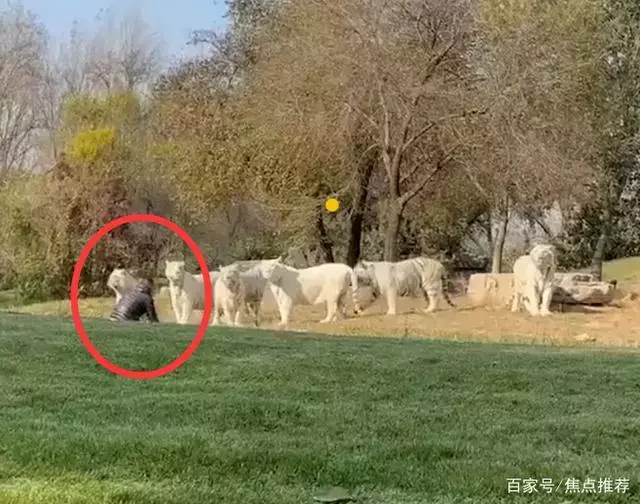
一名56岁男子23日下午在北京大兴野生动物园突下车冲向虎群,不断用语言、动作挑衅11只白虎,这些白虎始终未扑向该男子,让众人捏把冷汗,最后男子毫发无伤被救回,今天更多内幕细节曝光,原来男子与老虎之间隔有电网和电草,才让白虎不敢贸然向前。
该名闯入园区的男子因「严重扰乱公共场所秩序」已被北京警方刑事拘留,正调查其下车冲到虎群的动机。
界面新闻报导,经详细了解事发经过为:负责自驾游览区白虎展区安全巡视的工作人员在展区外巡逻时,发现有一名游客从自驾车辆上突然违规下车,该游客对工作人员的劝阻没有任何理睬,反而加快脚步跑过防护坡后,跳入展区隔离沟。
工作人员见状一边喊话要求闯入者不要乱动,一边向动物投喂食物,以分散其注意力,并迅速将突发情况向上级汇报。在施救过程中,该闯入者始终未听从工作人员的施救口令,从隔离沟底爬向展区内侧,与在展区内的11只白虎发生对峙,不断用语言、动作挑衅动物。
这些白虎却始终没扑向该名闯入男子,当下有网友猜可能白虎已经吃饱,或者白虎还在打量这个闯入者,才没对该男子采取行动。
但白虎没攻击该名男子的原因今天出炉,是因园区内有多重安全防护设施设备,其中一道隐蔽式设备起到了关键的防护作用,使闯入者与动物之间始终没有发生实质性接触。
园区工作人员透露,隔离沟前的草坪暗藏着外观像枯草的电草,还藏有电网,通过隐蔽的隔离技术将猛兽与游客(包括工作人员)进行了绝对隔离。其中的电网电压大概是10000伏,是脉冲电,高电压低电流,对动物是安全的,不会造成伤害。这些防护和隔离设置在游客和动物之间主要是通过地形、植物遮掩,游客根本完全看不到。
2016年7月北京八达岭野生动物园曾因一名女子在虎园内违规下车,被老虎攻击的事件,当时造成一死一伤惨剧。
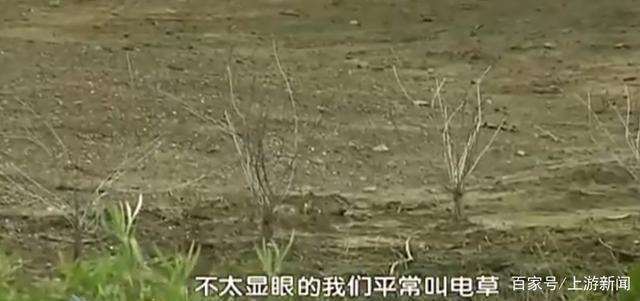
中国游客冲向虎群被”淡定不理” 网笑:牠不吃傻子
文章来源: 凤凰网
10/24/2021
10月23日,在北京野生动物园自驾游览区,一名游客突然下车,冲向了虎群。这一幕被后方的游客拍了下来,发布到社交平台后引发热议,不少网友大呼危险,并质疑游客遵守规矩怎么这么难?
据目击的游客称,昨天下午,在北京野生动物园自驾游览区,一名身穿深色羽绒服的游客擅自下车,不听园内工作人员的劝阻,冲向了虎群。只见他趴坐在7只白虎面前,嘴里还发出声音,“距离有些远,不知道他是在模仿虎叫声,还是在哭嚎。”而7只白虎有的在该游客面前蹲坐,有的来回徘徊,并未做出攻击性动作。现场有四五名工作人员赶到,劝阻回了想要追上去的另一名游客,不断催促其回到车内。一名工作人员还拿来了梯子等工具。
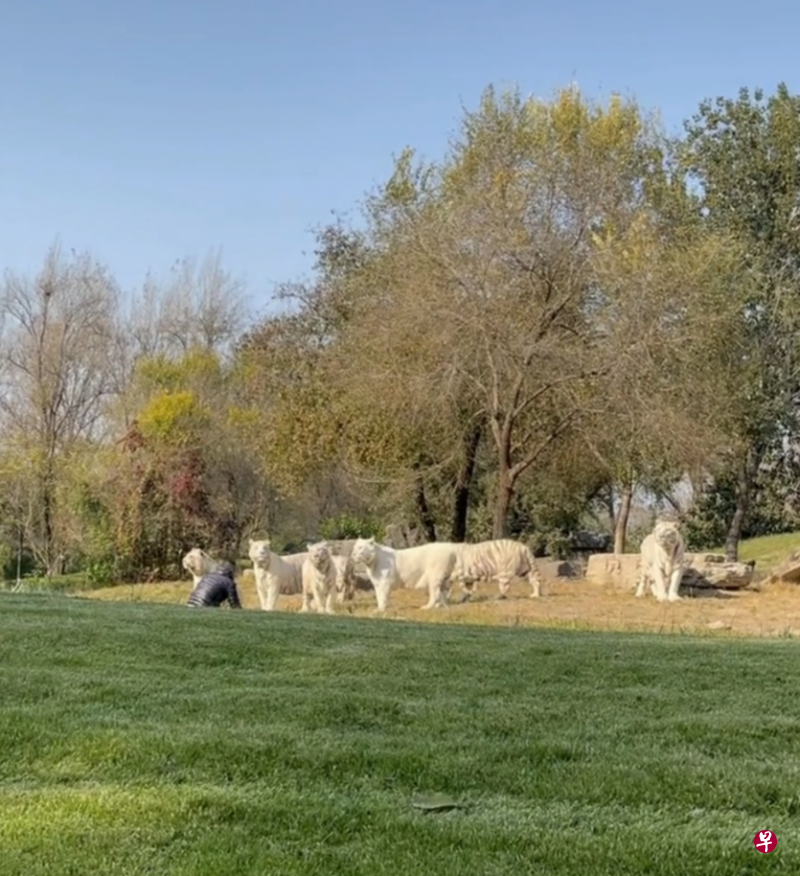
“大家都很震惊”,一名目击游客说,“后来,我们被工作人员驱离了,但是听到了几声响声。不知道发生了什么情况,有没有人或老虎受伤。”
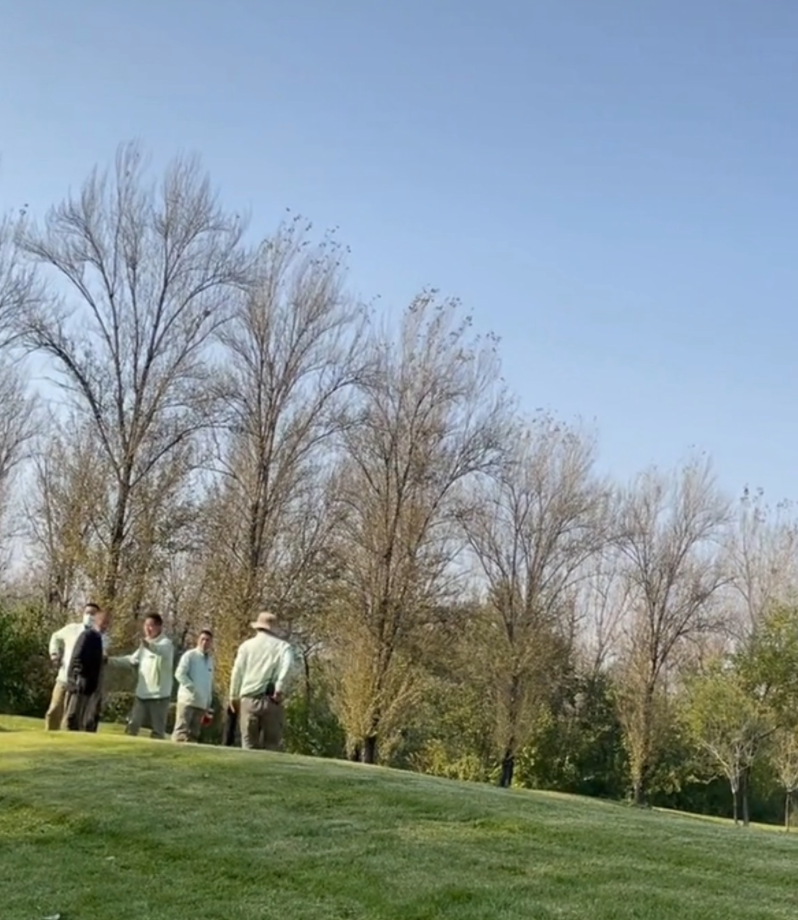
对此,记者联系了北京野生动物园。工作人员回应,昨天下午,园方就已经报警。目前,警方正在调查中,后续情况以警方通报为准。
此前,北京野生动物园就发生过有游客在自驾游览区擅自下车的事件。园方工作人员解释,园内自驾游览区主要供游客远距离观看野生动物,允许游客“开车窗、开天窗”观光,但不允许游客下车。据介绍,北京野生动物园自驾游览区采用五层安全防护技术。在猛兽展区,园区已通过隐蔽的隔离措施将猛兽与游客、工作人员进行了有效隔离,只是由于设计精巧,游客基本感受不到隔离措施的存在。园区内每一路段,都配备了安全员进行巡查,会随时对游客进行提醒。
网友对新闻纷纷留言,”别害了老虎,牠是无辜的。””给老虎送外卖吗?””这是来碰瓷(讹诈)的吧!””老虎:妈妈教我不要乱吃奇怪的东西””主动上门的一定不是什么好事,我还是不占便宜了。””老虎说我从不吃傻子。””老虎也不吃有病的。”
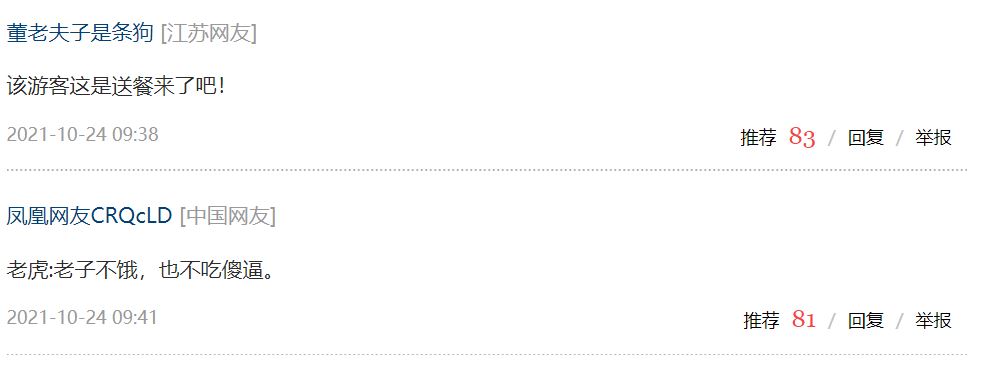

Tel: 551-580-4856 | Email: F.WINNIE.S@GMAIL.COM
诚招美国和加拿大法律服务代理
因公司发展需要,诚招美国和加拿大法律服务代理。
要求:
懂英语、或西班牙语、或法语。
能合法工作有社安号或工号。
无需改行, 可以兼职。
大学生和有销售经验优先考虑。
自雇生意公司发美国报税1099,加拿大T4A
有意了解详情, 请扫码加微信, 非诚勿扰!

蒙古国七只海狸染Delta变种
大公报
9/13/2021
【大公报讯】综合美联社、新华社报道:蒙古国国家人畜共患病研究中心11日通报,该国至少在7只河狸身上检测到Delta变种病毒,这是蒙古国首次报告动物感染新冠病例。
蒙古国国家人畜共患病研究中心主任朝格巴达尔赫11日表示:“在8月,首都乌兰巴托环境部门海狸繁育中心有工作人员新冠检测呈阳性。之后,(我们)在七只海狸中检测到了Delta变种。”他还指,被感染的河狸出现咳嗽、流鼻涕等症状,目前已全部康复。蒙古国暂时未报告其他动物感染新冠病例,但养有宠物的人需保持警觉,定期观察宠物有无异常症状。
在美国,亚特兰大动物园10日发布声明表示,园内至少有13只西部低地大猩猩确诊新冠肺炎,其中1只60岁雄性猩猩Ozzie也出现轻症。根据声明,园方正替确诊猩猩提供单株抗体治疗,以避免出现并发症。由于猩猩是群居动物,因此很难将染疫的猩猩隔离,但园方会尽量加强清洁及通风等措施,未来还将会替猩猩、老虎、狮子和豹等动物接种由兽医所开发的新冠疫苗。
对于猩猩染疫原因,园方认为可能是遭一名无症状染疫员工传染。不过园方表示,目前尚未有数据显示动物能将病毒传染给人类,并强调猩猩园区与游客之间有段距离,因此游客不必担心会被传染。
More than a dozen gorillas at Zoo Atlanta diagnosed with COVID-19
The gorillas are among other primates infected in zoos elsewhere
By Bo Emerson, The Atlanta Journal-Constitution
9/12/2021
Zoo Atlanta is treating 13 western lowland gorillas who have tested positive for COVID-19.
The gorillas were tested after they demonstrated mild coughing, runny noses and loss of appetite. Atlanta’s animal handlers took fecal samples and nasal and oral swabs from the gorillas and sent the samples to the Athens Veterinary Diagnostic Laboratory at the University of Georgia, which returned a presumptive positive result.
Atlanta is waiting for confirmation from the National Veterinary Services Laboratory in Ames, Iowa, which also received samples.

Atlanta’s gorillas are apparently the second group of great apes infected by the coronavirus, according to Dr. Sam Rivera, senior director of animal health at Zoo Atlanta.
A troop of eight gorillas at the San Diego Zoo Safari Park were treated for the virus in January. One San Diego silverback received an experimental antibody regimen, and all recovered.
The 20 gorillas at Zoo Atlanta are divided into four troops, and members of every troop have shown evidence of infection. Rivera said it is likely that the virus made its way into the gorilla population from an animal care staffer who was asymptomatic when she came to work, but was tested later and was shown to be positive.
That staffer had already been vaccinated and was wearing the protective gear that has long been part of Zoo Atlanta protocol, including gloves, mask and a face shield.
There is no requirement that members of the Zoo Atlanta staff get vaccinated, though a high percentage of the staff has been vaccinated, said spokesperson Rachel Davis.
Because the gorillas live together in close proximity, it is impossible to isolate the affected members, said Rivera. All will be tested. As the affected gorillas recover from their symptoms, the staff plans on vaccinating the gorilla population with the Zoetis vaccine, which was developed for veterinary use and had been used at the San Diego zoo on its ape population.
Zoo Atlanta has already vaccinated its Bornean and Sumatran orangutans, its Sumatran tigers, its African lions and its clouded leopard.
Atlanta’s veterinary team is treating some of the gorillas at risk of serious complications with monoclonal antibodies, starting with the most senior members.
Those include Ozzie, who, at 60, is the oldest male gorilla in captivity. Rivera said Ozzie is showing mild symptoms. “We don’t feel that we’re out of the woods,” he added. “We’re taking it on a day by day basis.”
Humans are known to infect animals, but the distances between visitors to the zoos and the apes would make animal-to-human transmission extremely unlikely. The CDC says animals don’t play a significant role in spreading COVID to humans.
Other zoos have begun vaccinating at-risk animals, including the Detroit Zoo, which announced plans to vaccinate its gorillas, chimpanzees, tigers and lions.
COVID-19 has been known to infect tigers, lions, mink, snow leopards, cougars, dogs and domestic cats.
Joint CDC and FDA Statement on Johnson & Johnson COVID-19 Vaccine
The following statement is attributed to Dr. Peter Marks, director of the FDA’s Center for Biologics Evaluation and Research and Dr. Anne Schuchat, Principal Deputy Director of the CDC
For Immediate Release: April 13, 2021
Statement From: Director – Center for Biologics Evaluation and Research (CBER)
Peter Marks M.D., PhD.
As of April 12, more than 6.8 million doses of the Johnson & Johnson (Janssen) vaccine have been administered in the U.S. CDC and FDA are reviewing data involving six reported U.S. cases of a rare and severe type of blood clot in individuals after receiving the J&J vaccine. In these cases, a type of blood clot called cerebral venous sinus thrombosis (CVST) was seen in combination with low levels of blood platelets (thrombocytopenia). All six cases occurred among women between the ages of 18 and 48, and symptoms occurred 6 to 13 days after vaccination. Treatment of this specific type of blood clot is different from the treatment that might typically be administered. Usually, an anticoagulant drug called heparin is used to treat blood clots. In this setting, administration of heparin may be dangerous, and alternative treatments need to be given.
CDC will convene a meeting of the Advisory Committee on Immunization Practices (ACIP) on Wednesday to further review these cases and assess their potential significance. FDA will review that analysis as it also investigates these cases. Until that process is complete, we are recommending a pause in the use of this vaccine out of an abundance of caution. This is important, in part, to ensure that the health care provider community is aware of the potential for these adverse events and can plan for proper recognition and management due to the unique treatment required with this type of blood clot.
Right now, these adverse events appear to be extremely rare. COVID-19 vaccine safety is a top priority for the federal government, and we take all reports of health problems following COVID-19 vaccination very seriously. People who have received the J&J vaccine who develop severe headache, abdominal pain, leg pain, or shortness of breath within three weeks after vaccination should contact their health care provider. Health care providers are asked to report adverse events to the Vaccine Adverse Event Reporting System at https://vaers.hhs.gov/reportevent.html.
CDC and FDA will provide additional information and answer questions later today at a media briefing. A recording of that media call will be available on the FDA’s YouTube channel.
The FDA, an agency within the U.S. Department of Health and Human Services, protects the public health by assuring the safety, effectiveness, and security of human and veterinary drugs, vaccines and other biological products for human use, and medical devices. The agency also is responsible for the safety and security of our nation’s food supply, cosmetics, dietary supplements, products that give off electronic radiation, and for regulating tobacco products.
###
Six Spaces Home Staging

Contact: Hongliang Zhang
Tel: 571-474-8885
Email: zhl19740122@gmail.com
WHO recommends follow-up care, low-dose anticoagulants for COVID-19 patients
26 January 2021
WHO recommends that patients who have COVID-19 – both confirmed and suspected – should have access to follow-up care if they have persistent, new or changing symptoms.
This is one of the recommendations made by WHO in revised clinical management guidelines.
Evidence was gathered on the post COVID condition, so-called ‘long COVID’, where people who have recovered from COVID-19 continue to have longer-term issues like extreme fatigue, persistent cough and exercise intolerance.
Understanding this condition is one of WHO’s priority areas of work. In February 2021, WHO will organize a series of consultations to reach consensus on a description of this condition and its subtypes, and case definitions. This scientific understanding will inform the name of the condition. The consultations will include a broad range of stakeholders, including patient groups.
For COVID-19 patients at home, WHO suggests the use of pulse oximetry to measure oxygen levels in the blood. This needs to be coordinated with other aspects of home care, such as education for the patient and care provider and regular follow-up of the patient.
For hospitalized patients, WHO suggests the use of low dose anticoagulants for preventing the blood clots forming in blood vessels (thrombosis).
For hospitalized patients who are taking supplemental oxygen (including high-flow nasal oxygen) or non-invasive ventilation, WHO suggests positioning patients on their stomachs to increase oxygen flow (awake prone positioning).
The guidelines also include recommendations on the use of care bundles to systematize care provision for COVID-19 patients, as well as a recommendation to favour clinical judgement over models in making decisions for the patient’s care.
The recommendations were made by an independent panel of experts, the Guideline Development Group, on the basis of detailed rapid reviews of all available evidence.
The guidelines are a living document, updated regularly as more data becomes available.
世卫不建议接种莫德纳疫苗:应防止接种者出现过敏性休克
来源:海外网
2021年01月27日
海外网1月26日电 世界卫生组织专家组对莫德纳新冠疫苗mRNA-1273的数据进行评估后,26日发布了该疫苗的暂行使用建议;世卫组织将于2月底就是否将该疫苗纳入紧急使用清单作出决定。
据俄罗斯卫星通讯社26日消息,世卫组织免疫战略咨询专家组1月21日开会评估了莫德纳新冠疫苗mRNA-1273Ⅲ期临床试验的初步数据。考虑到接种这款疫苗后可能出现过敏反应,世卫组织专家建议只在能防止接种者出现过敏性休克的条件下提供接种。专家组不建议孕期妇女接种mRNA-1273,除非她们属于高风险人群(比如医疗工作者)。专家组指出,鉴于目前疫苗不足,加上没有证据表明疫苗能降低新冠病毒传播风险,不建议为旅行者优先接种。
据新华社早前报道,美国疾病控制和预防中心22日发布的一份报告显示,截至1月10日,全美共有4041396人接种了第一剂美国莫德纳公司研发的新冠疫苗,共报告了1266起不良反应事件,其中包括10起过敏反应。美疾控中心介绍,过敏反应是危及生命的严重不良反应,通常在接种疫苗后几分钟至几小时内发生。这10起被确认为过敏反应,其中9起发生在接种后15分钟之内,1起发生在接种后45分钟;108起可能为包括过敏反应在内的严重不良反应事件,需要进一步核查。
美国食品和药物管理局于2020年12月18日批准了莫德纳新冠疫苗的紧急使用授权申请。这是继美国辉瑞制药有限公司与德国生物新技术公司联合研发的新冠疫苗之后第二款获批在美紧急使用的新冠疫苗,被允许用于18岁及以上人群,共接种两剂,间隔1个月。(海外网 侯兴川)



